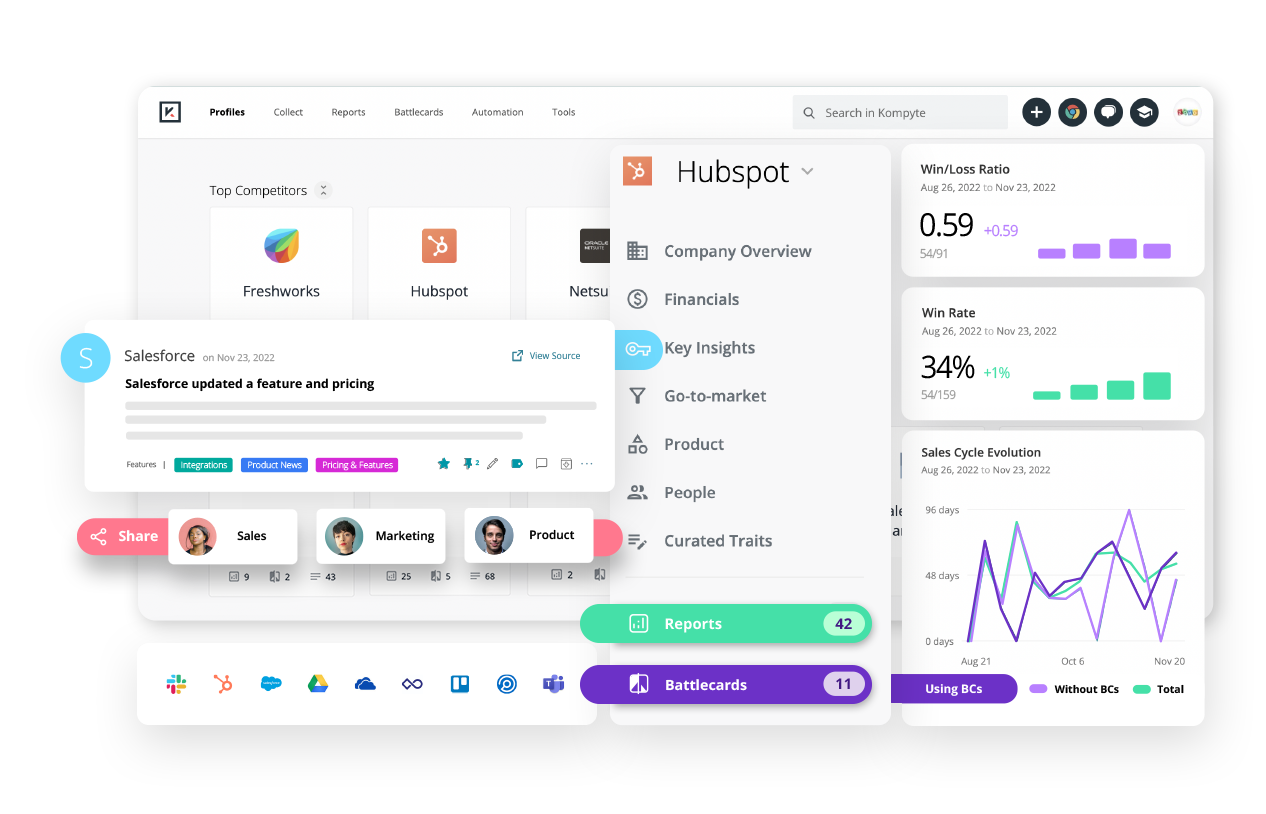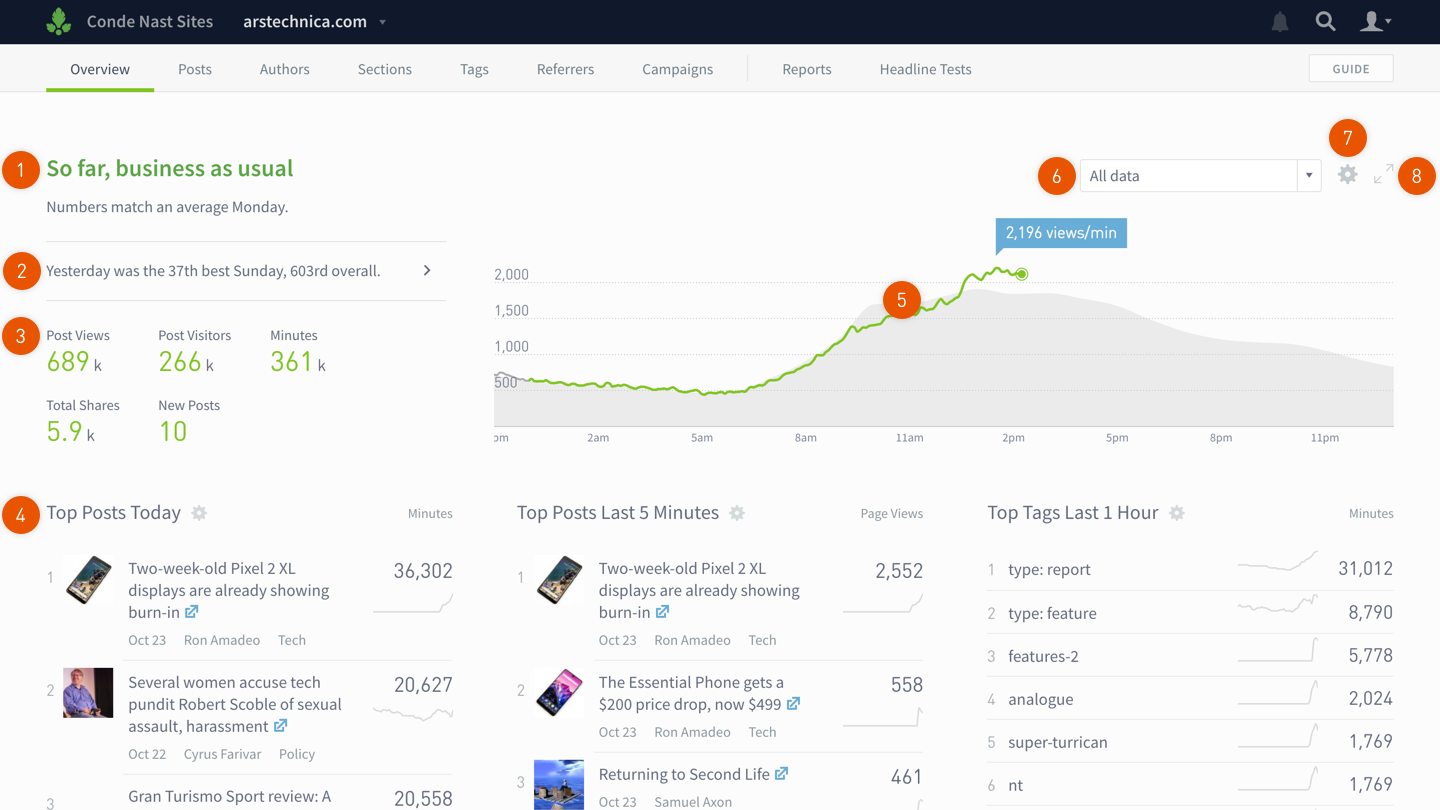Content Marketing
How Product Marketing AI Tools Can Create Stronger Content Strategies
Unlike the short-lived fad of NFTs, product marketing AI isn’t simply a buzzword—it’s a real game-changer for brands that’s here to stay.
After all, marketers are often strapped for resources, spending precious hours cobbling together insights from free tools or scouring competitors’ sites for a glimpse into their next moves. Sound familiar?
Product marketing AI changes that. From enhancing your market research to leveling up your product positioning, it can help you create stronger content strategies that leave a lasting impact.
Product Marketing AI: A Quick 101
Product marketing AI tools are solutions that automate and turbocharge tasks that comprise marketers’ day-to-day to-do lists, such as competitor analysis, persona research, and content optimization.
Like other types of AI popping up in the market, the magic of product marketing AI lies in how it can instantly analyze large volumes of data, whether it’s market trends or consumer behavior.
With this AI-powered treasure trove of actionable insights and data-driven recommendations, you can better tailor your content strategies to captivate your target audience’s attention, resonate with their pain points and preferences, and drive meaningful engagement.
5 Ways Product Marketing AI Can Augment Your Content Marketing
Ready to say goodbye to a content strategy rooted in gut checks? Whether your content marketing efforts focus on blog posts, eBooks, case studies, or fact sheets—or, ideally, a mix of all—here are five ways product marketing AI can leave a lasting impression and makes readers scroll to the end instead of closing the tab.
1. Conduct competitor analyses.
Google’s Ad Transparency Center, the company’s new counterpart to Facebook’s Ad Library, is a great way to peek into your competitors’ latest marketing moves, but it still requires manual monitoring. (When you’re in a crowded industry with dozens of competitors, those hours can add up quickly.)
AI-powered competitor analysis tools, on the other hand, can crawl through all that data and provide valuable takeaways regarding your competitors’ online presence, content performance, and marketing strategies. For example, platforms like Kompyte can track competitors’ websites, reviews, social accounts, ads, content, and even job postings to identify key trends, popular keywords, and successful content formats.
2. Complete buyer persona research.
Crafting buyer personas is a must-have when refining your content game—after all, you don’t want to create Barbie-themed content this summer when your target audience belongs to the Oppenheimer crowd.
Solutions such as Delve AI can streamline this process by using natural language processing algorithms to crunch mountains of social media, customer reviews, and user journey data to identify common pain points, preferences, behaviors, and quirks of different customer segments.
Armed with this information, you can whip up content strategies that hit the sweet spot for different customer segments.
3. Identify market trends.
Similarly, product marketing AI empowers marketers to uncover and capitalize on market trends with laser precision.
After all, for the average content marketer with no background in data science or a crystal ball, it can be challenging to know where the market is headed next. Apps like Semrush Market Explorer that leverage natural language processing and machine learning can compile nuanced insights that are otherwise too arduous or costly to obtain.
The result? A content strategy that aligns with the evolving market landscape.
4. Manage content analytics and optimization.
As any savvy marketer knows, content isn’t something you create, post, and forget about. (Even though your stacked workload might make you wish that were the case.) Over time, statistics can appear outdated, pop culture references can feel stale, and that punny joke can, sadly, become cringeworthy.
That’s why content analytics and optimization should be an important part of any content strategy. Why reinvent the wheel when you can fine-tune it so it makes a longer-lasting impact?
With product marketing AI, you don’t have to manually sift through the hundreds, if not thousands, of content pieces you’ve posted over the years. If you’re using Contently to keep your content engine running, the Contributors page offers an AI analysis of your top-performing contributors by aggregating all of their bylines. It’s an instant snapshot of which content creators keep your audience most captivated and engaged.
Meanwhile, tools like Parse.ly and Chartbeat can evaluate metrics such as engagement rates, click-through rates, and conversion rates to pinpoint precisely where your content needs a facelift. Some solutions, such as Frase, can even offer optimization suggestions by comparing your content to competitors’.
5. Create a content calendar.
Even the best content strategy can be moot if it doesn’t translate to a comprehensive content calendar. But creating and managing content calendars can be a full-time job by itself.
Luckily, free AI tools like the ever-popular ChatGPT can boost your productivity by generating content calendars aligned with your posting cadence, audience segments, keywords, and overall strategy.
Go Big (With AI) or Go Home
While AI is never a substitute for human creativity, it can provide a valuable starting point for leveling up your content strategies. Think of these tools as powerful assistants that can augment your and your team’s expertise, enabling you to make data-driven decisions that lead to business success.
Even better, as AI technology continues to evolve, it will only become more sophisticated. So, start exploring and enjoy the view (and the kudos from higher-ups) as you deliver better content that results in a more impactful customer experience.
Stay informed on the future of content marketing and AI by subscribing to The Content Strategist—we’ll deliver fresh insights on the latest in digital transformation, content marketing strategies, and tech trends straight to your inbox.
Image by metamorworksGet better at your job right now.
Read our monthly newsletter to master content marketing. It’s made for marketers, creators, and everyone in between.







